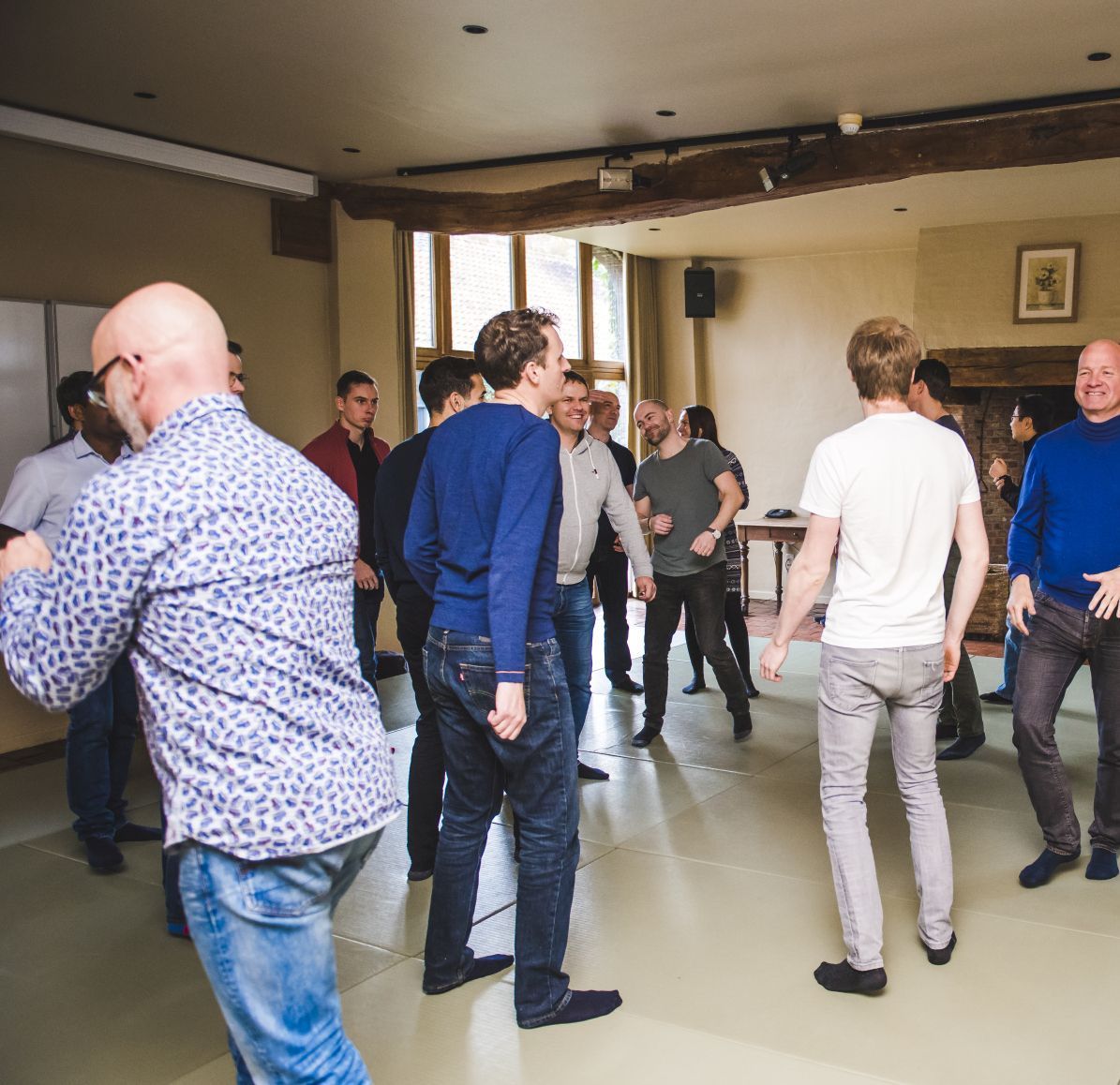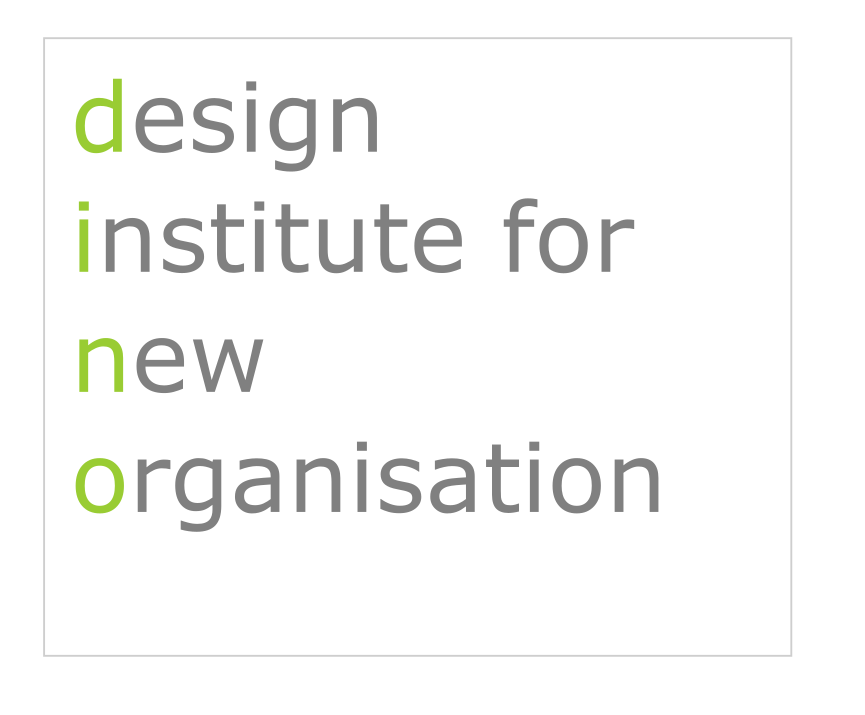how do you act under pressure? Think you know? Think again.
Dino Institute • 10. Dezember 2024
Do You Really Know How You Act Under Stress?
The truth is, under stress, most of us are blind to our own behaviour. Let me share a story to show you what I mean.
What’s Going On Here?
• Creating fear or toxicity in the workplace
• Undermining your own effectiveness
We installed a simple embodied leadership practice to help her handle stress differently. When we simulated the situation again, she addressed the issue head-on. She stayed calm, friendly, but firm—exactly what the moment called for. Afterward, she realized her fear of seeming harsh was unfounded. The result? Clarity, resolution, and respect.
Do you want to lead with greater effectiveness, authenticity, and presence—even under pressure? Let us help you develop the tools to regulate stress and truly walk your talk. Reach out, and let’s get started.
Reach out, push here!
I was watching a couple playing a high-stakes game. They were up against other couples, with a big prize on the line. The pressure was intense, and their interactions? Brutal. They shouted, blamed each other, and behaved in ways that would probably wreck most relationships.
But here’s the kicker: in the post-game interview, the woman said something fascinating. She praised her partner, talked about their “respectful” relationship, and even said they were ready for a baby. Then they watched the footage of themselves—and were horrified. Embarrassed. Ashamed.
Why?
Because they had no idea how they were acting in the moment.
Here’s what happens when stress hits: our conscious, thoughtful behaviour gets hijacked by automatic responses. Fight, flight, freeze—call it what you want. But it’s not just our behaviour that changes. Our perception of ourselves becomes warped, too. We don’t just act differently under pressure; we don’t even see how we’re acting.
And here’s the problem: as leaders, we don’t have the luxury of being blind to our actions. People watch us closely. They follow our example—not what we say we’ll do, but what we actually do when the heat is on.
This is the real “walk your talk” challenge. You might have the best intentions, but stress can sabotage them. And when that happens, the side effects can be devastating:
• Alienating your team• Creating fear or toxicity in the workplace
• Undermining your own effectiveness
The Solution:
Train Your Stress Response
At our institute, we specialize in helping leaders master this. It’s not about eliminating stress—it’s about learning to regulate it and respond effectively.
Here’s a quick example:
I worked with an executive who found it challenging to address a team member who wasn’t meeting expectations. The stress of dealing with this individual led her to avoid difficult conversations altogether. Even when she attempted to address the issue, her approach was so gentle and indirect that nothing ever got resolved. We recorded her in action, and during the playback, she became aware of the physical signs of stress—such as a tight stomach and tense shoulders—that were fuelling her tendency to evade confrontation.
What About You?

Think about it: Why didn’t you meet the deadline? Why were you late? Why did you say that in the meeting? Sound familiar? And how often do those questions actually lead to improvement? Rarely, right? Here's why: The 3 Big reasons the “Why” question is useless It assumes we’re robots. When you ask someone “Why did you do that?” it implies there’s a clear, rational answer — as if people calculate each move like a machine. But according to research (see Daniel Kahneman), we’re making decisions before we’re even aware of them. So if someone gives you a neat answer to "Why?", it’s usually just that — a neat answer. It triggers fake responses. Most people hate looking clueless. So, when you hit them with “Why?”, they’ll give you an answer, any answer, just to keep face. And that answer? It’s likely not the real reason. It’s a trap for defensiveness. When we ask “Why?”, especially in the heat of frustration, people feel judged. That makes them defensive. They shut down, and we lose any chance of authentic change. It keeps us stuck in the past. Even if you get a good answer, you’re just reliving past behaviours. It locks you into focusing on what’s already happened, instead of what could be. If all that resonates with you, you’ll appreciate an effective alternative — one that turns this stale thinking on its head. What works instead? At the Dino Institute, we take a forward-focused approach to behaviour. Instead of playing detective about the past, we look at how to create change in the now and for the future. It’s about meeting people where they are — and recognizing that human behaviour isn’t some rigid set of causes and effects. People aren’t machines. They’re driven by a complex mix of intention, habits, and subconscious cues. So, instead of “Why?”, we ask: • How can we improve? • How will we know we’re improving? A method roven to enable real change Our approach, inspired by pioneers Steve De Shazer and Insoo Kim-Berg, is solution-oriented and grounded in respect for what makes people human. It’s simple, powerful, and adaptable. This method is built on key principles: 1. Change is constant. The fix that worked yesterday may not work tomorrow. We focus on progress, not perfection. 2. You don’t need to dissect every problem. Real solutions can emerge without picking apart every issue. 3. Solutions often come from unexpected places. And they’re often simpler than you think. 4. Small steps lead to big gains. Even a tiny improvement can drive massive shifts over time. 5. Focus on what works. Forget the mistakes. Amplify the wins. Embodied Solutions in Action: Real Case Take a recent client of ours. She came to us wanting to be more assertive in negotiations. But after asking the right questions, we discovered what she really wanted was confidence — the kind that brings her ideas to the table in the moment, instead of after the meeting is over. So, we focused not just on “assertiveness” but on what happens to her physically in high-stakes moments that blocks her voice. With a tailored, embodied approach, she walked out not just feeling more effective in negotiations but without even touching on assertiveness drills. Try Our Approach – For Free Ready to see how this could work for you? Book a completely free 30-minute consultation. Bring us one question, one challenge — and experience first-hand how an embodied, solution-focused approach can elevate your team, your relationships, and the impact you make every day. Let’s work on how to make real change happen — without the useless Why.

Let me ask you something: When was the last time you truly felt connected during an important conversation? Not just saying the right words but radiating authenticity and presence that made others feel your leadership, even before you spoke? That’s what embodied leadership is all about. It’s the difference between being heard and being felt. Between making an impression and making an impact. It’s the missing piece that most leadership programs overlook. Let’s face it, leadership isn’t just about talking a good game. It’s about presence. It’s about resilience. It’s about forging real connections, the kind that people feel in their gut. At Dino Institute, we focus on it intensely. And there’s a reason for that. Unlocking Real Leadership: The Missing Link Imagine walking into a room, and your presence alone sets the tone. People listen—not just because of what you’re saying, but because of how you carry yourself. You’re not just using words; your entire being is aligned and projecting the message. That’s embodied leadership—aligning your mind and body to unleash your full potential as a leader. We know… It might sound abstract. But it’s not. It’s actually a process that can be learned, practiced, and mastered. The Power of Embodiment: More Than Just Talk Think about this: long before humans had language, we communicated through body cues, tone, and energy. Our bodies were—and still are—the most powerful communication tools we have. And science backs this up. The way you sit, stand, move, and feel in the moment has a profound impact on your effectiveness as a leader. But most of us are disconnected from this hidden superpower. Our programs teach you to tap into this physical intelligence, so you’re not just thinking like a leader… you’re embodying it. You become a leader that others want to follow—not just because you say the right things, but because every fiber of your being communicates leadership. From Awareness to Action: The Embodied Leadership Formula Our formula is simple: 1. Intention: Set your mind on being fully present. 2. Embodiment Tool: We design a personalized technique—specifically for you—to anchor this state in your body. 3. Impactful Action: Once you’re in this state, every move, word, and gesture flows naturally and powerfully. Want proof? In our coaching sessions, we’ve filmed hundreds of executives before and after using these tools. The transformation is striking. Communication becomes sharper. Presence more powerful. Their impact? Exponential. Why Traditional Approaches Fail Most leadership training focuses on surface-level tactics: saying the “right” words, using the “correct” gestures. But this often backfires. People see through these techniques. They’re judged as fake, manipulative, and disingenuous. At Dino Institute, we go deeper. We focus on what’s underneath—your somatic intelligence—the hidden messages your body sends and how to align them with your intentions. Once this alignment happens, the authenticity is unmistakable, and the results? Game-changing. Ready for Real Change? Let’s Talk. If you’re tired of shallow leadership techniques and want to learn how to command a room with your presence… if you want to create true connection and lead with a force that’s felt, not just heard… Book your free consultation with us today. There’s no catch—just a chance to experience a completely new way of showing up as a leader. Here’s What You Can Do Right Now: 1. Reflect on a recent interaction that didn’t go as planned. 2. Recall not just what was said, but how you felt in your body. Tight chest? Tense shoulders? Was your mind racing? 3. Awareness is the first step. Understanding your body’s signals is the start of unlocking your true leadership potential. The Solution is in Your Body. Let’s unlock its potential together. Book your free consultation now. — The Dino Institute

We aim to help our partners to develop themselves and their organisations in places where people can flourish and experience meaning so that they can help to improve the lives of their customers. We do this through executive coaching, team development trajectories and support in the design and co-creation for new organisation. We work from a client-centred approach and always offer customized ways of working. We consider ourselves to be experts in developmental processes. Our pillars are: (critical) systems thinking Stimulating somatic intelligence Holding a solution-oriented approach




